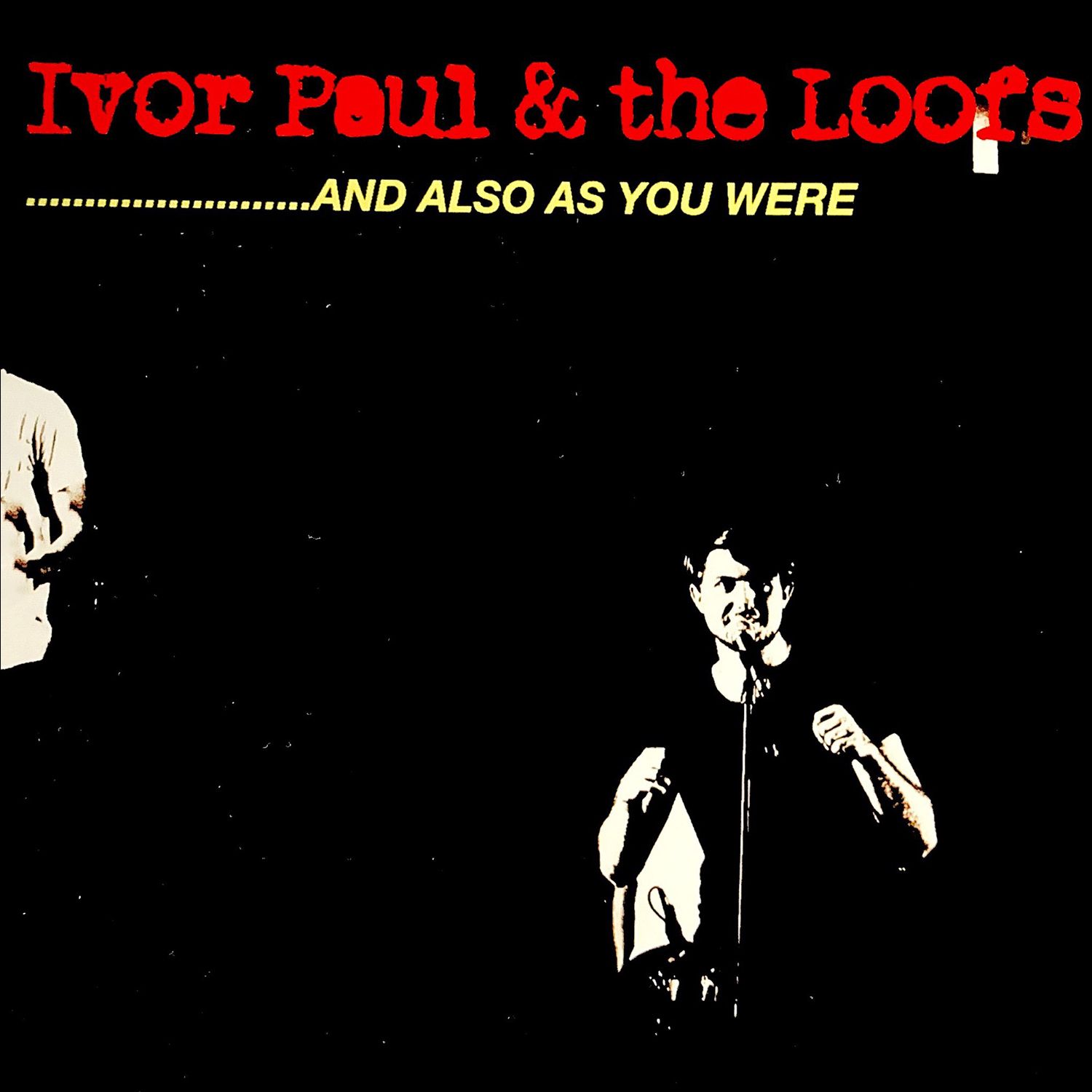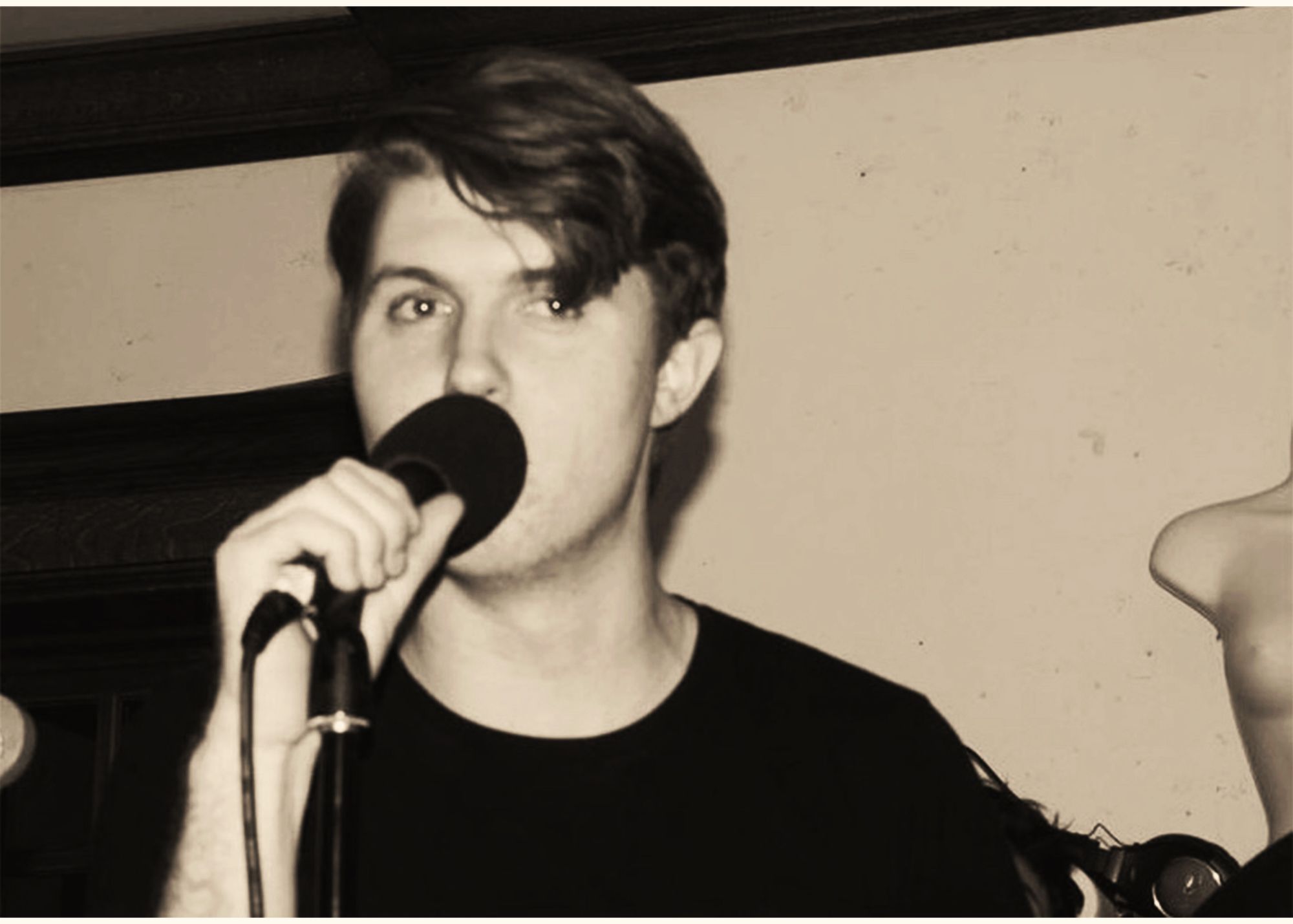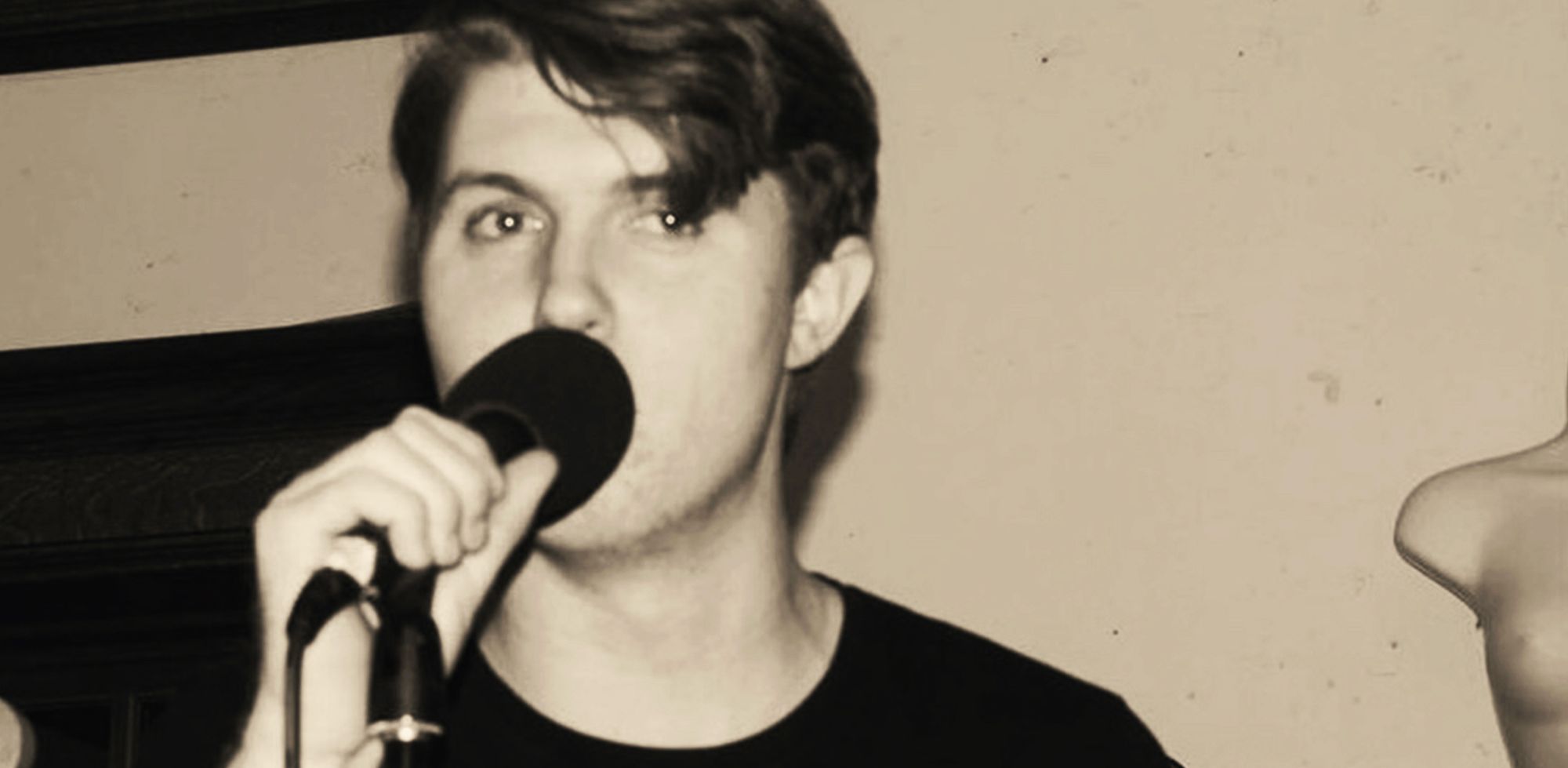"Ivor Paul functioned as a sort of folk hero of working class Britain, an enigmatic figure who lingered in the shadows while developing into one of the great unsung songwriters of his generation."
Words by Giovanni Musso, Rough Trade NYC
As the canon of first-wave post-punk continues to expand, there’s the names you’ve seen before a million times: Joy Division, The Fall, Gang of Four, Siouxsie and the Banshees, all left an indelible mark on a genre which continues to thrive a half-a-century later. The buzzsaw electricity of punk music submerged in gloomy textures, its fury never dampered but often shrouded in the shadows. Yet, there’s a band that remains absent from tastemakers’ lists in spite of equal importance. You’ll see their name and its leader, Ivor Paul, sketched into the journals of Kurt Cobain yet nowhere near Rolling Stone’s list of Greatest Albums of all-time. Ivor Paul & the Loofs’ 1980 debut and only release …And Also As You Were remains not just a hidden gem but a cornerstone of the entire post-punk genre. Their songs ring true to the political strife of the modern age, but due to inscrutable licensing issues, their catalog remains absent from streaming services.
Ivor Paul functioned as a sort of folk hero of working class Britain, an enigmatic figure who lingered in the shadows while developing into one of the great unsung songwriters of his generation. Born in Salford to a large family of Irish immigrants, Paul bounced around local bands of the Manchester area as a utility man and as a roadie for Cabaret Voltaire in his late teens before settling into the role of a songwriter. One of the first to utilize the concept of a band for his solo work, he founded The Nymphos in 1977 before changing the name to The Loofs as a reaction to other band’s overtly sexualized monikers. Ever the contrarian, Paul once told NME, “[i]f there’s one thing I want to do, it’s to have undone everything The Beatles have for music”. When asked why, Paul cheekily replied “Why not?”
It’s this audacity that drove …And Also As You Were, the first time a punk band dared to think of themselves as more. While first single “Normal Pathology”, is rife with the downstroked mania of his contemporaries, it was selected solely as an understatement. Paul wasn’t content with making a name for himself as another garage band, he desired a masterpiece. On the moody opener “Submersion”, Paul powers through a two-chord grinder whose chugging mid-tempo. “Hollow in the middle, I’ve got my mouth” he repeats to himself, over and over, a mantra of sorts that would serve as a rallying cry at their raucous shows. It was around this time, Paul’s notoriety as well as genius began to travel through the grapevine. Over the course of a weekend of drunken bacchanalia in Düsseldorf, he found himself wailing away on drums within earshot of early NEU! sessions. Never once having drummed in his life, his primal hammering away in 4/4 would inspire the krautrock band’s famous motorik beat.

While his technical wizardry was often masked by damp production and cheap equipment, Paul still found ways to play the studio like a sandbox on …And Also As You Were. The gothic “Scissors” saw Paul and an uncredited Simon Gallup record the guitars and bass at half speed (an effect that would directly inspire the The Wedding Present) while “Night Porter” features the field sounds of his local washing machine as a substitute for guitar feedback in an act of proto-shoegaze. The album was a volatile confection, best described as a blend of the macabre aesthetic of Bauhaus, A Certain Ratio’s genre flirtations, and Killing Joke’s pop sensibilities. Paul would later return the favor by appearing on The Cure’s sophomore album Seventeen Seconds but went similarly uncredited after a majority of his melodica contributions were scrapped.
For all of Paul’s talents as a craftsman, it would go to waste without words to hold onto. The lyrics on …And Also As You Were range from the personal “empty in the belly/yellow and sweaty” to the political “we hold hands, attend mass/Libya, a land of contrasts”. Sometimes they occupy both, as found on the biting, character sketches, “Tans Among Tans” where Paul eviscerates middle-class banality.

However, …And Also As You Were’s most resonant fusion of intimacy and revolution comes on the album’s immaculate closer, “Nancy”. There are many great love songs in the post-punk genre, often they become the band’s most accessible and popular tracks. Over the dizzying flush of noise and a grueling “Be My Baby” beat, Paul bellows “I’m not a model of masculinity/she’s not a model of swimsuit issues/I’m not a model of masculinity/government having technical issues”. A remarkably powerful moment, one whose dissection of gender roles and systemic turmoil still holds true to this day.
…And Also As You Were’s failure is a story told time and time again. The band was unceremoniously dropped from Factory Records due to budget issues and a tumultuous relationship between Paul and the label heads. Self-released in the summer of 1980, the album stalled without charting (not uncommon for many upstart garage bands) but with a lifetime of accomplishments behind him, Paul already was done with the music industry. He was initially on the shortlist for joining young upstarts New Order, before the band decided to keep vocal duties in-house. It’s not difficult to hear his style of trenchant social commentary in modern post-punk acts or how his outwardly romantic sensibilities were to shape how the goth rock subgenre would evolve across the eighties. It remains the pinnacle of a genre it sought to expand upon, one of the great contradictions of rock history, and a record that desperately needs to be remembered properly.

